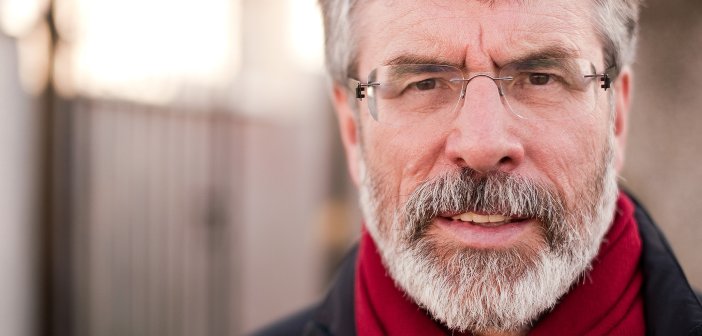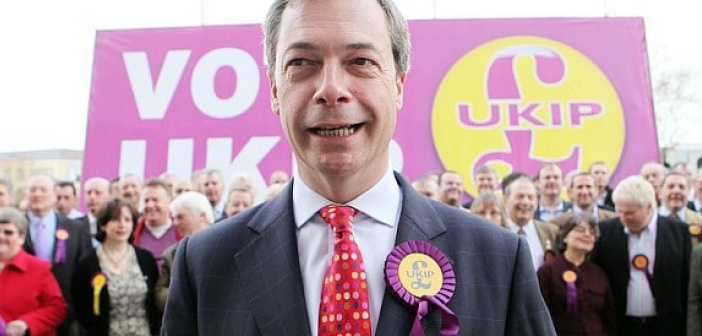Curry & Comedy | Being an Irish Stand-Up Comedian in Brexit Britain
I’ve always considered my Irish-ness something of an advantage when performing in the UK. Having an accent automatically differentiates you from the other acts on the bill and buys you an extra 30 seconds with the audience at the top of your set before you get your first big laugh. British people have been conditioned to laugh at the Irish accent, from Dave Allen in the 70s to the likes of Dara O’Briain, Terry Wogan or countless others. Even Jimmy Carr’s parents are Irish. As soon as you start speaking, there’s almost an assumption you’ll be funny. If your jokes are good, you’ve got a fighting chance.
Last summer, a majority of British voters decided to leave the European Union, apparently carried by an anti-immigrant sentiment. While I wouldn’t go as far to say that the referendum result has drastically changed the atmosphere in the comedy clubs I perform in, it has put my onstage Irish-ness into a different context. I am an immigrant in a much more real way than I was before, as the spectre of hard borders and old tensions loom.
Gerry Adams was recently on the radio discussing Lough Foyle, an estuary separating Derry and Donegal that has been disputed territory since the Partition of Ireland. In the event of a hard border between the Republic and Northern Ireland, one side will have to claim Lough Foyle. My father – for whom the 1980s have never really ended – called me up today to say that he thinks we should send a gun boat up North to “defend the Lough.” Brexit is both hilarious and terrifying, like picturing Nigel Farage in French maid’s costume.

A majority of stand-up comics doing the rounds on the UK’s comedy circuit today could probably be fairly described as overwhelmingly liberal, politically correct Jeremy Corbyn types who are ashamed about their privilege in the same way a racist might be embarrassed about farting in a hot car. The same, however, cannot always be said of their audiences. If the Brexit vote has taught leftie stand-up comics anything, it’s that statistically speaking, in every comedy audience there’s a sizeable group of people who do not share their political views.
Some comedians, both here and in the States, are reporting that since the referendum and the election of Trump, conservative audience members have felt emboldened, heckling and disrupting shows where previously they may have sat through the PC gags in stony-faced silence for fear of being called a bigot. The evidence for this is purely anecdotal, and since moving permanently to the UK late last year I was curious to see if I’d encounter anything similar myself.
One of my first gigs since moving over took place on a bleak Thursday night outside of London, in a place another comic on the bill described as a “UKIP stronghold.” I was performing as part of a local pub’s “Comedy and Curry” night, a monthly occurrence where patrons pay £8 and get some curry, and then, you know, some comedy. I arrived and found about 60 people sitting around tables in a long antechamber to the bar, scoffing what was left of their curries as a mic stand stood ominously in the corner of the room, no stage, no lighting, the mic itself cellotaped to the stand. It was going to be one of those. A nice, well-intentioned woman introduced herself and says she’s running the gig. She tells me her mother is from Ireland, and I smile and nod dutifully as Irish people always do in this situation, impressed that her mother is from a place.

My feeling of dread alleviated slightly when the gig began; the other acts on the bill were talented and the crowd seemed respectful, attentive. When I got onstage however I began to appreciate the irregularity of the room, the feedback from the sound system, the expectant faces of the rows and rows of English 40 somethings sitting at weird angles before me. The room was oddly shaped, white and wrinkled, like Paul Nuttal’s scrotum.
My set actually begins rather smoothly. A few minutes in I do a line about the IRA, in which I attempt to lampoon the hypocrisy of some Irish people fretting about ‘Islamic terrorists.’ The punchline gets a lovely, rolling laugh from the majority of the crowd, and it takes me a moment to realise a woman has begun heckling. She’d disrupted an earlier act’s set by talking on her phone, and she was now shouting “That’s not funny!” Her breath was a heady mix of lager and korma, an exotic waft of aromas that perfectly juxtaposed two cultures; one enriching, one shit.
“That’s not funny!” she shouts a second time, just audible as the laughter dies down. I consider pointing out the obvious; the joke was demonstrably funny. But in that brief moment it occurred to me that terrorism is not funny, and in fact the world is full of tragedy and laughter is futile. I performed the rest of my set fairly unenthusiastically after that, before leaving the stage to collect my pay. I asked a bar girl for a glass of water before I left, and realised immediately that she was Irish. As I took the water our eyes met and it became obvious that in a few moments I would return to re-join the metropolitan elite in London, and she would stay here in the land of £8 curry and comedy nights. Her eyes seemed to plead “take me with you.” I turned my back.

On the spectrum of heckling, having a drunken woman shout “that’s not funny!” is actually pretty tame. A few weeks later I was performing in an Italian restaurant in Covent Garden. On the way to the venue one passes all the grand theatres and shiny musicals of the West End, before descending a flight of narrow stairs into a dimly lit cellar with claustrophobic, red-painted walls. The audience that night were unforgiving. The first two rows were comprised of one boorish group of friends in their late 30s and early 40s, drunk on cheap wine and bloated on Italian food and self-importance.
They heckled the MC off, and you could see the whites of the opening acts eyes as he attempted to stare them down, his knees shaking. I turned to the act on after me and offered him my fee if he’d go on early and do a longer set, leaving me off the hook to go home. “Not a chance,” he said, and I heard my name announced over the PA to a chorus of jeers. Onstage, I got my first proper look at the crowd and realised that there were two audiences; one comprised of the first two rows and then a second cluster of people sitting in silence behind them. The second group were ordinary, reasonable people on a night out trying to enjoy the comedy, but were being effectively held hostage by the first group of ignorant drunkards. I realised that the divided room actually perfectly represented Brexit Britain, and pointing this out earned me my first laugh.
The back rows chuckled and relaxed for the first time, while the hecklers up front turned to their leader for their next move; a bald overweight man who looked like Coronation Street’s Fred Eliot if Fred had closed down his butcher shop and turned it into an office for the BNP. His first move, bizarrely, was to try and pre-empt any fat jokes I would make about him, but I in turn proceeded to list-off the plethora of other flaws in his character and appearance before I could ever get to his weight. His mates laughed heartily at his expense, the rest of the crowd joined in. The tables had turned on him, and he didn’t like it.
“So what, you’re here to steal my job, is it?” was his smug reply. “Sorry mate, but I’ve no interest in becoming a child pornographer.” The crowd roared, and the man sank back into his seat, finally accepting defeat. To my horror, I realised how easy it is to manipulate a group of people by projecting false confidence and peddling a few easy half-truths. Which is ironic, because it must be exactly how Boris Johnson feels.
